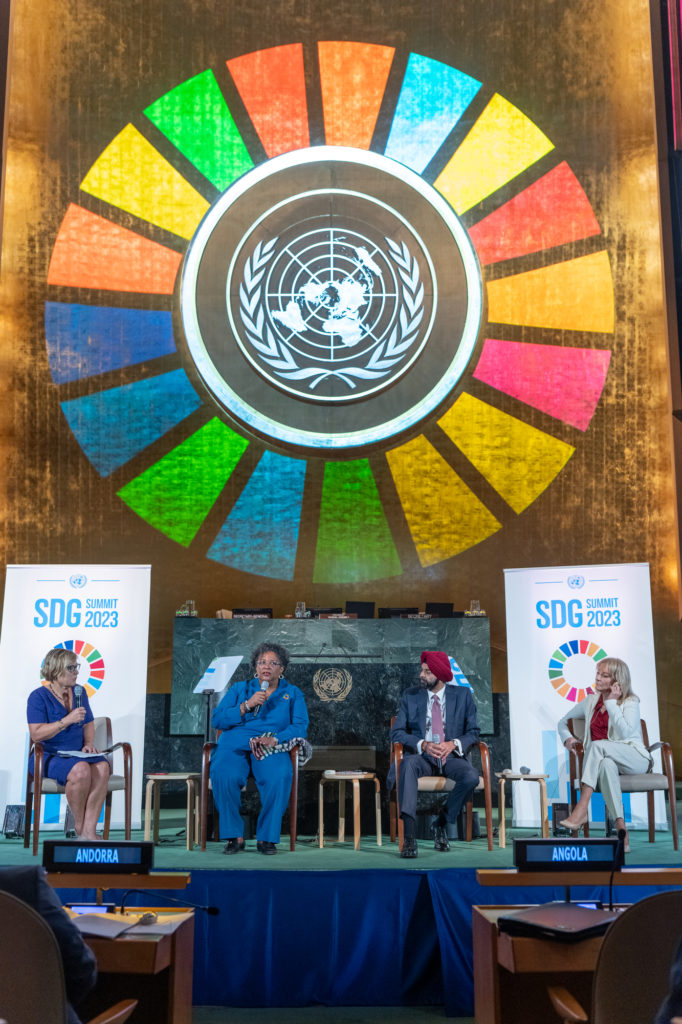writes Sunit Bagree, Research Associate in International Development in the School of Global Studies
*The views in the following article are the personal views of the author and are not an official position of the School.*

In September, the United Nations (UN) adopted a Political Declaration reaffirming world leaders’ commitment to the Sustainable Development Goals (SDGs) and promising to accelerate action to achieve them. While the Declaration acknowledges that poor countries need huge investment to meet the SDGs, it is rather vague on where this money is going to come from.
Foreign aid has a role to play – despite specific flaws and structural problems afflicting the global aid system. But action in other areas could have even bigger positive impacts on financing sustainable development in poor countries. This blog post discusses three such areas: Special Drawing Rights (SDRs), debt and tax.
First, poor countries need to be supported through SDRs. SDRs are an international reserve asset created by the International Monetary Fund (IMF); they can be exchanged for freely usable hard currencies. In 2021, the IMF issued SDRs worth $650 billion. The G20, which has received the vast majority of these SDRs, has pledged to channel $100 billion of them to poor countries. Yet this amount is far too small considering the social, economic and environmental challenges facing poor countries.
Earlier this year, Japan pledged to channel 40% (instead of 20%) of its SDRs to poor countries, making it the global leader amongst major economies. But even 40% is too low, considering SDRs are relatively unimportant to the economies of G20 countries. G20 countries should channel at least 50% of their allocations to poor countries now, and potentially an even greater proportion in the future. Moreover, SDRs should be issued annually, and the allocation and channelling systems require improvements to make them more equitable and efficient.
Second, it is critical that poor countries are not hampered by debt. In 2020, the G20 agreed a Common Framework (CF) to support poor countries with debt relief and restructuring, so that they could maintain essential spending. Yet, as an inquiry conducted by the UK Parliament’s International Development Committee highlights, the CF is not working in practice. In part, this is due to its opaque, bureaucratic processes and lack of alignment with the SDGs and human rights. But it is also due to the lack of a real enforcement mechanism, which allows many private sector lenders to refuse to participate. It is unsurprising, therefore, that poor countries with the highest public debt payments have reduced public spending by 3% on average (in real terms) since 2019.
More broadly, the global debt system must be transformed. For example, greater transparency among both debtors and creditors would expose illegal and odious (i.e. to oppressive or kleptocratic regimes) loans, which should be cancelled. Similarly, the creation of a UN sovereign debt restructuring mechanism that mandates the participation of private sector lenders would be game-changing. Of course, debt justice also requires that rich countries fulfil their climate adaptation and mitigation financing pledges through grants rather than loans, and pay their fair share of climate debt.
Third, poor countries must be empowered through progressive tax measures. In 2021, the richest and most influential countries agreed an Inclusive Framework (IF) for taxing large multinational corporations. However, the IF’s effective minimum tax rate is shockingly low at 15%. An independent international commission has argued for a 25% rate – still a conservative figure by historical standards and thus best seen as an absolute minimum starting point. In addition, the IF is riddled with exclusions and contradictions, and also lacks an impartial arbitration mechanism.
More broadly, as with debt, the global tax system requires a complete overhaul. A UN tax convention could create legally binding obligations ensuring that tax measures promote the SDGs and human rights. As well enshrining a fair effective minimum corporate tax rate without exceptions, such measures would include tackling tax dodging through increasing transparency, cracking down on secrecy jurisdictions and tax havens, and investing in tax, customs and financial crime agencies in poor countries. Tax justice also demands international cooperation in relation to significant wealth taxes, a comprehensive global financial transaction tax and an ambitious climate damages tax – each of these measures individually could raise hundreds of billions of dollars globally.
There is not a lack of money to support equitable and sustainable investments in poor countries in line with the SDGs. However, despite the recent UN Political Declaration, genuine political will very much seems to be lacking.


Leave a Reply